- | 8:00 am
Ukrainian architects are testing new modular emergency housing to quickly rebuild
Displaced people in the country will need new housing quickly after so much has been destroyed by Russian shelling. These architects are learning lessons from around the world to try to quickly build the best possible solution.

In Bucha, Ukraine, the Russian attacks in March that brutally killed hundreds of civilians—including children who were shot while trying to escape—also destroyed or damaged more than 2,500 homes. Now, the community is rushing to build new housing. And one new pilot project aims to demonstrate how temporary homes can be built quickly and potentially replicated across the country, which needs to rebuild after so many buildings have been destroyed in the invasion.
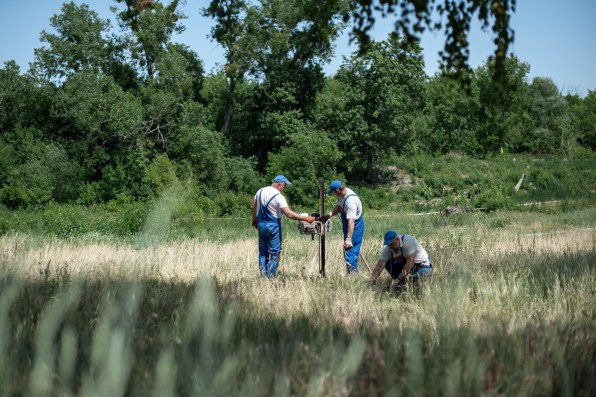
Right now, with more than 7 million Ukranians displaced inside the country (in addition to millions of others who have crossed the border to other parts of Europe), many people are still living in basic shelters. “Many of them have settled in places that are not suitable for long-term living, such as school gyms,” says Kyiv-based architect Slava Balbek, who designed the new modular housing system, called RE:Ukraine. The team studied what worked—and what didn’t—in more than 20 other temporary-housing projects built after other disasters around the world.
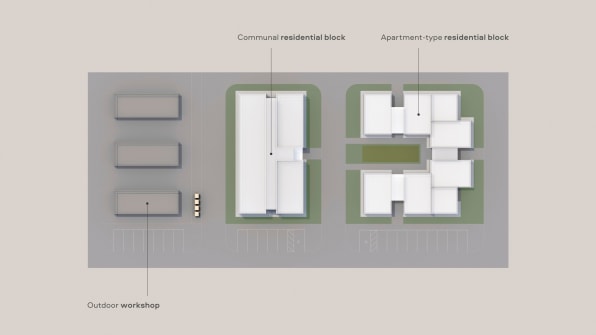
Their design includes a block of apartments that will be provided rent-free to displaced families, with shared space for kitchens, bathrooms, nurseries, and laundry machines, arranged so that families can avoid waiting in line. The architects wanted to focus on the dignity of residents, something that is often missing in emergency housing. There’s also shared space for recreation. “Besides providing residents with fully furnished private rooms and apartments, RE:Ukraine aims to promote socialization and stress relief,” Balbek says. “We want to help people who faced the brutalities of war smoothly adapt to the new environment and build ties with each other.”
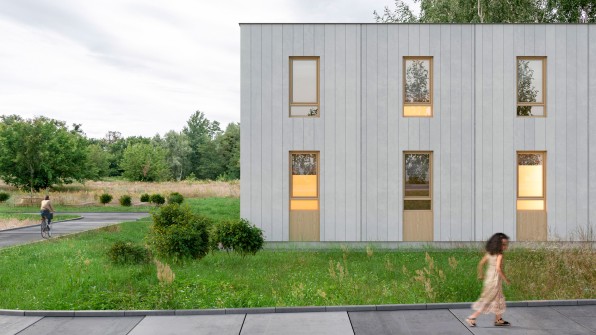
Another communal section offers space for working or studying, and room for more temporarily displaced people on the second floor. In a workshop outside, the design team will be testing new construction technology to study how many times the components can be dismantled and reassembled without losing quality. The pilot plans to test the design with 15 families for nine months before disassembling the building and reusing the components elsewhere. “Technical details aside, we will look into how residents interact with the space and process their feedback to optimize future settlements: What they like, what is missing, which zones need to be enlarged, which turned out to be unnecessary,” he says.
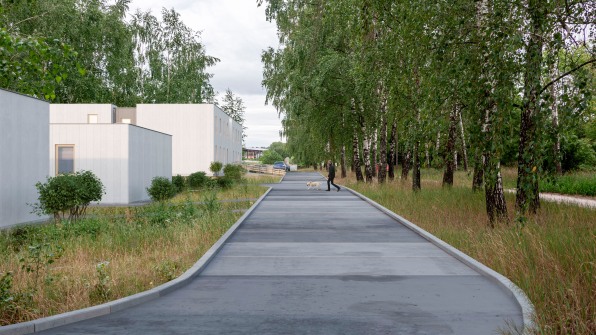
The pilot site, currently an empty field, is near local infrastructure, which was “essential for us in terms of integrating residents into the local community,” Balbek says. “This part often gets overlooked in planning temporary housing for [internally displaced people], and people end up isolated in the city’s outskirts.” The site in Bucha is also only an hour away from downtown Kyiv.
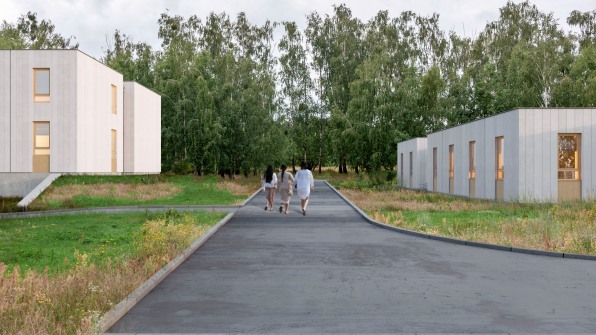
Preconstruction planning, including finding the site and developing the master plan, has taken most of the summer. Now, the architects are raising funds for the construction. Because the modular design can be built relatively quickly, they expect to build the pilot in 100 days. Separately, the team is working on plans for a settlement in Western Ukraine for 5,545 residents, another project in the town of Chernivtsi, and master plans on seven plots at the request of city and regional governments.
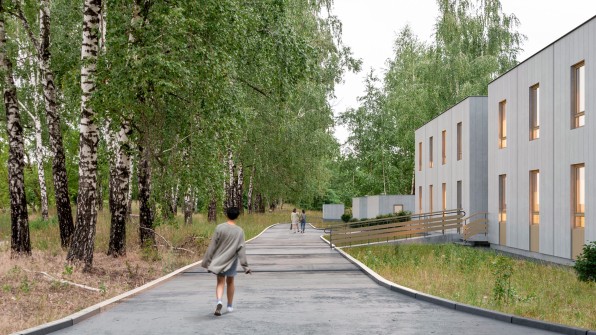
After building the pilot project, the company wants to refine the design and share it for use in other countries. “The big idea is to scale RE:Ukraine experience and go global,” says Balbek. “Our studio can develop these projects under the RE:Ukraine system in almost any country in compliance with local demands for temporary housing due to wars or natural disasters.”



































